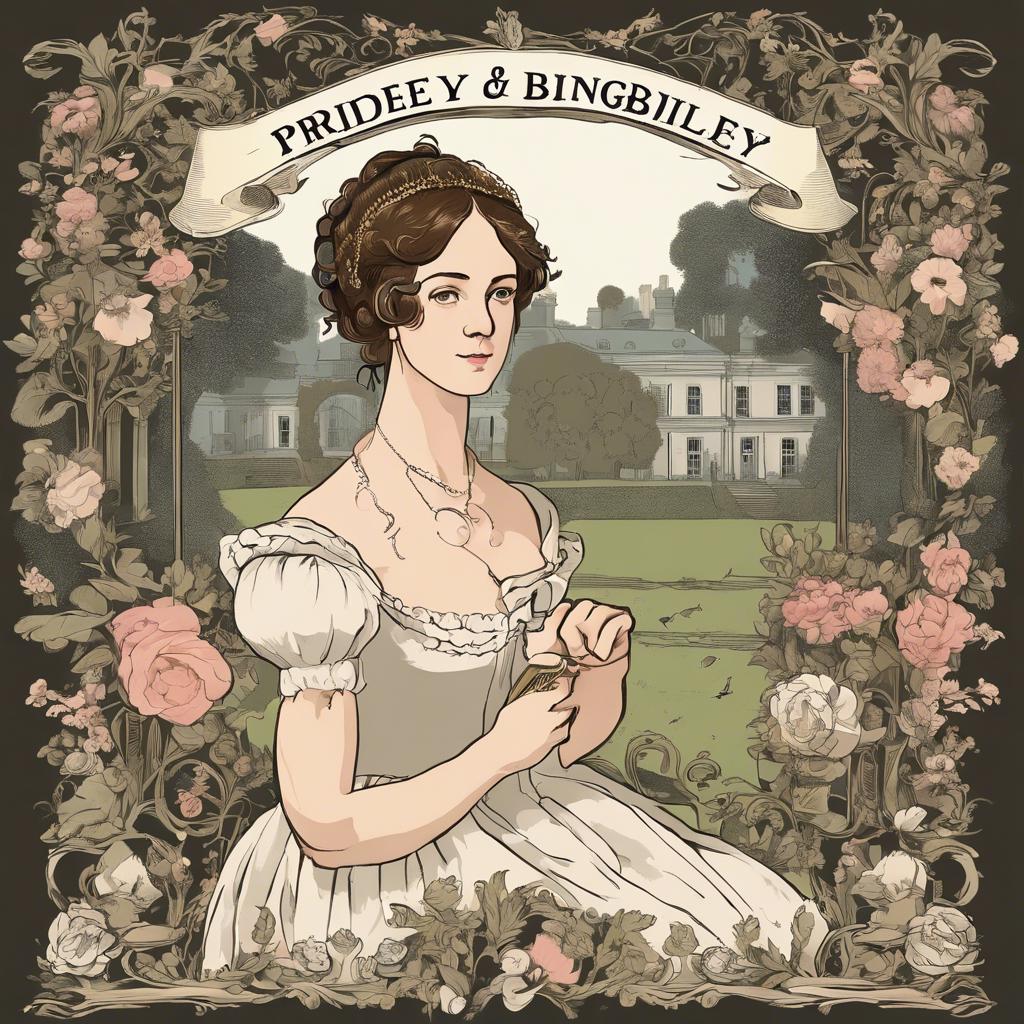In the early 19th century society depicted in Jane Austen’s beloved novel, “Pride and Prejudice,” one character stands out for her cunning and calculated demeanor: Miss Caroline Bingley. Set against the backdrop of Regency England, Bingley’s character serves as a stark contrast to the honest and moral values championed by the novel’s protagonist, Elizabeth Bennet. In this article, we will explore the complex motivations and actions of Miss Bingley, shedding light on her role in the intricate social dynamic of Austen’s world.
Step Into the World of Cheryl Bolen
Dive into the enchanting stories of love, intrigue, and elegance set in the Regency Era. Cheryl Bolen's novels offer timeless romance and captivating tales that will leave you wanting more.
Explore Cheryl Bolen's Books Now
Miss Bingleys Manipulative Nature and Scheming Ways
Miss Bingley’s manipulative nature and scheming ways are evident throughout the novel Pride and Prejudice. She is constantly trying to gain the attention and affection of Mr. Darcy, going to great lengths to discredit and undermine Elizabeth Bennet in the process. Her actions reveal a deep-seated jealousy and insecurity, driving her to extreme measures to secure what she believes is rightfully hers.
One of Miss Bingley’s most notable tactics is her relentless flattery and attention towards Mr. Darcy. She constantly seeks to monopolize his time and turn his affections away from Elizabeth. Through subtle manipulation and carefully crafted conversations, she attempts to sway his opinion in her favor. Her calculated efforts demonstrate a cunning and devious nature that stops at nothing to achieve her goals.
In her schemes to win Mr. Darcy’s heart, Miss Bingley also shows a cold and calculating side. She is willing to deceive and betray those around her, including her own sister, in order to advance her own interests. Her lack of empathy and disregard for the feelings of others paint her as a formidable antagonist in the story, adding depth and complexity to the dynamics of the social circles in which she operates.
The Social Class Divide: Miss Bingleys Disdain for the Bennet Family
In Jane Austen’s Pride and Prejudice, the social class divide is a prevalent theme that is exemplified through Miss Bingley’s disdain for the Bennet family. Miss Bingley, a member of the upper class, looks down upon the Bennets, who belong to a lower social stratum. This disdain is evident in her interactions with the Bennet sisters, particularly Elizabeth, whom she perceives as inferior due to her family’s lack of wealth and social status.
Miss Bingley’s condescending attitude towards the Bennets highlights the rigid social hierarchy of the time, where one’s status was determined by birth and wealth. She makes no effort to conceal her contempt for the Bennet family, often making snide remarks about their manners, education, and social standing. This attitude reflects the prevalent class consciousness of the Regency era, where social class dictated one’s place in society and interactions with others.
Throughout the novel, Miss Bingley’s disdain for the Bennets serves as a stark reminder of the injustices perpetuated by the social class divide. Her elitist views and behavior towards the Bennet family underscore the challenges faced by those who were marginalized due to their social status. As readers, we are compelled to reflect on the implications of such societal divisions and the impact they had on individuals’ lives and relationships.
Miss Bingleys Unrequited Love for Mr. Darcy
In the classic novel “Pride and Prejudice,” Miss Bingley’s unrequited love for Mr. Darcy is a central theme that adds depth to the story. Despite her efforts to win his affection, Mr. Darcy’s heart belongs to Elizabeth Bennet, leaving Miss Bingley heartbroken and envious.
Throughout the novel, Miss Bingley subtly competes with Elizabeth for Mr. Darcy’s attention, using her wit and charm to try to impress him. However, her efforts are in vain as Mr. Darcy remains steadfast in his affection for Elizabeth, ultimately rejecting Miss Bingley’s advances.
Despite her disappointment, Miss Bingley’s unrequited love for Mr. Darcy serves as a reminder of the complexities of love and the importance of staying true to oneself. While her feelings may go unreciprocated, they highlight the power of love and the ability to endure even in the face of rejection.
Navigating the Complex Relationships in Pride and Prejudice
In Pride and Prejudice, Miss Bingley plays a significant role in the complex relationships portrayed throughout the novel. As a character who embodies both pride and prejudice, Miss Bingley’s interactions with others reveal the intricacies of societal expectations and personal motivations.
One of Miss Bingley’s most notable relationships is with Mr. Darcy, her brother. Their dynamic is characterized by loyalty, manipulation, and a shared sense of superiority. Despite her attempts to win Mr. Darcy’s affections, Miss Bingley is ultimately unable to compete with Elizabeth Bennet, who challenges and intrigues Mr. Darcy in ways that Miss Bingley cannot.
Furthermore, Miss Bingley’s relationship with Jane Bennet sheds light on class distinctions and jealousy. As a member of the upper class, Miss Bingley looks down upon Jane’s social standing and attempts to sabotage her potential relationship with Mr. Bingley. This rivalry highlights the destructive nature of envy and societal expectations in Regency England.
The Way Forward
Miss Caroline Bingley’s character in Jane Austen’s “Pride and Prejudice” offers a nuanced portrayal of the societal pressures and expectations faced by women during the Regency era. Her outward appearances of refinement and sophistication often mask her underlying insecurities and manipulative tendencies. Through her interactions with Elizabeth Bennet and the other characters in the novel, Miss Bingley serves as a stark reminder of the limitations imposed on women of her time. As we delve deeper into her character, we are reminded of the complexities and contradictions that defined the lives of women in the early 19th century. Miss Bingley’s story serves as a cautionary tale and a window into the world of pride, prejudice, and social conventions that Austen so brilliantly captures in her timeless novel.


